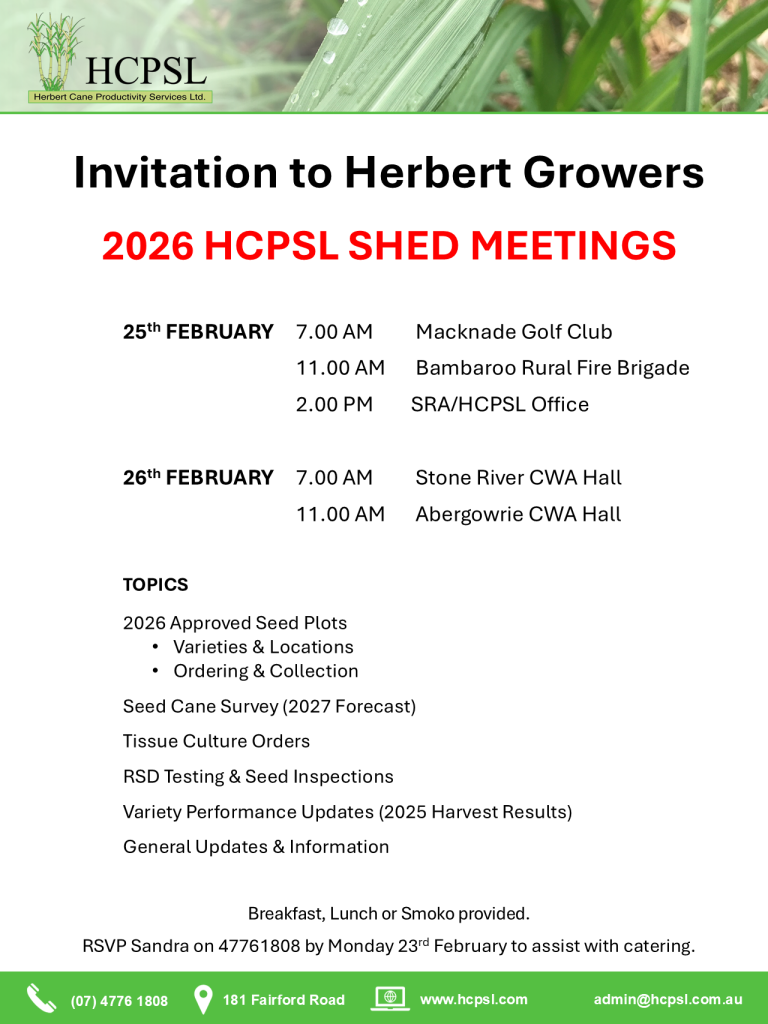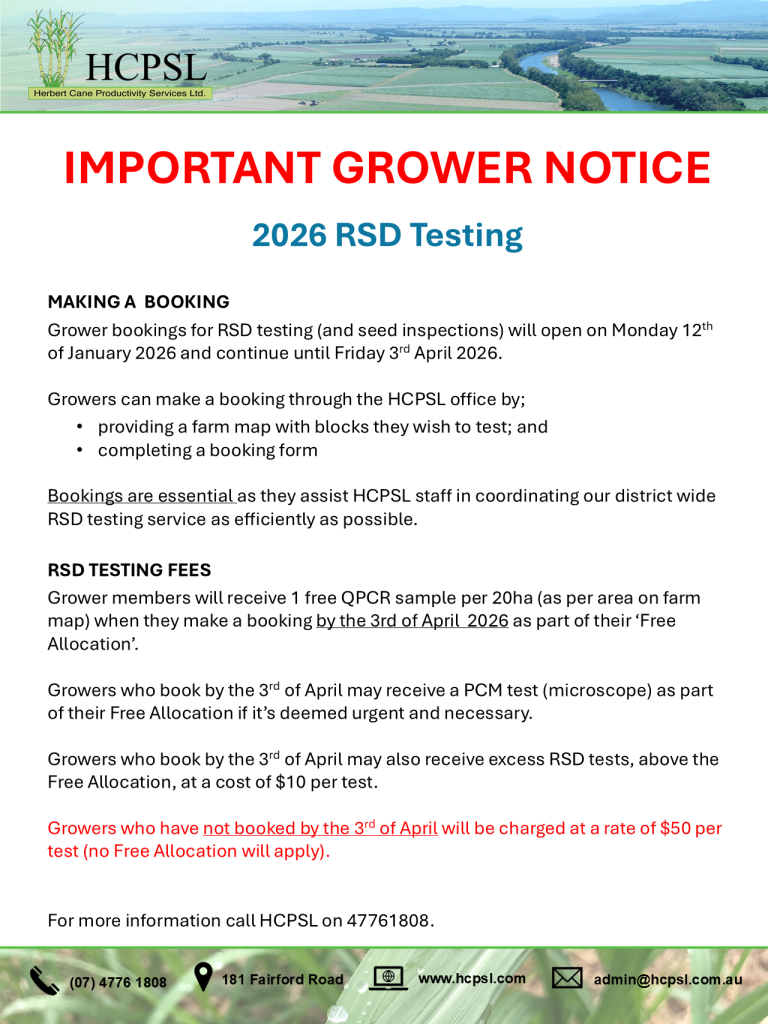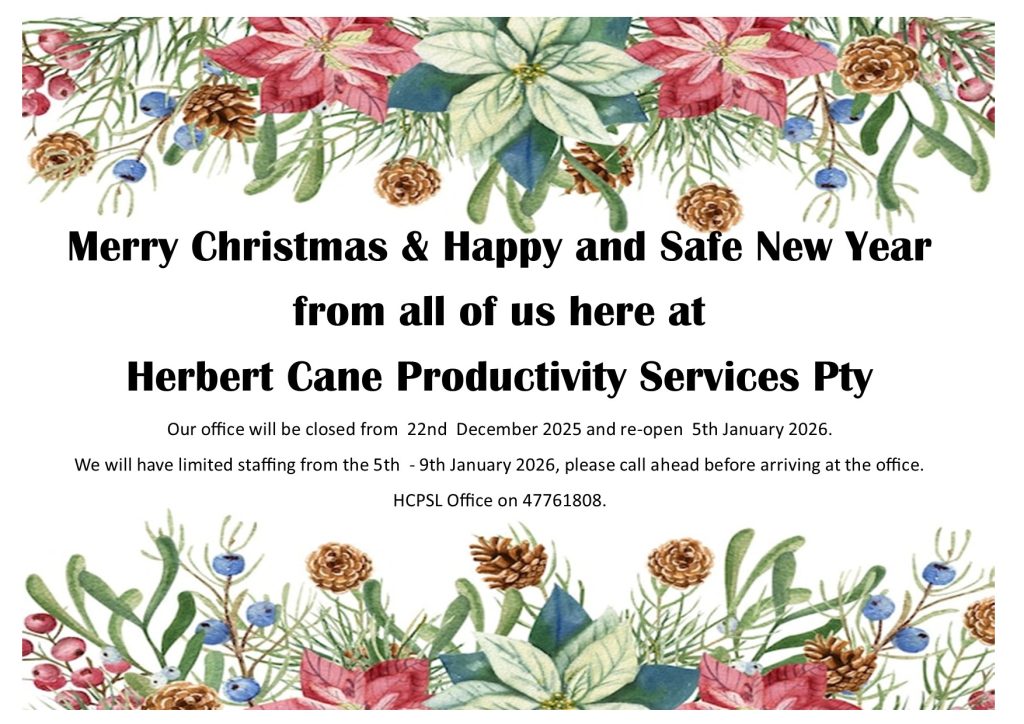Welcome to HCPSL
Herbert Cane Productivity Services Ltd.


Herbert Cane Productivity Services Ltd (HCPSL) is pleased to announce the appointment of two Grower
Directors for the coming Board term. As nominations for the Board did not exceed the available board
positions, the new Grower Directors were appointed unopposed.
Returning Director Greg Erkkila will be joined by Anthony Girgenti and two returning Wilmar nominated
Directors to form the new HCPSL Board. Their combined experience will support HCPSL’s commitment to
delivering high quality agronomic services to our members and the Herbert sugarcane industry.
HCPSL wishes to thank outgoing Directors Gino Zatta, Michael Pisano and Cameron Barber for their valued
contribution to the company and the important role they played in guiding the strategic direction of HCPSL
over the last 3 years.
The new Board of Directors reinforced their shared commitment to the future of the Herbert sugar industry
during the final meeting of the outgoing Board of Directors and will sit in an official capacity for the first time in
April.
HCPSL Manager Adam Royle welcomed the appointments, highlighting the Board’s role in guiding strategic
direction in an everchanging landscape. Having strong governance and a clear strategic vision ensures HCPSL
will continue to provide the services and support our members rely on.
With a new Board in place, HCPSL remains firmly committed to delivering practical, on ground support for
growers and the Herbert region’s sugar industry. The organisation looks forward to the leadership and
direction the new Board will bring.
Adam Royle
Manager
07 47761808
aroyle@hcpsl.com.au
HERBERT WALK & TALK DAY – 14th APRIL 2026
More information over the coming weeks!

Herbert Growers are encouraged to attend a Shed Meeting in their area with topics for discussion and information on the following:
Breakfast, Lunch or Smoko will be provided at each of the Shed Meetings – RSVP Sandra 47761808

Growers please be aware of Making Bookings to secure your RSD Testing Timeslot by coming into the HCPSL Office through the
Hours of 7.00 am – 3.00 pm Monday to Friday, from Monday 12th January 2026.




The Department of Primary Industries (DPI) has extended its locust response to include sugarcane growing regions along the Queensland coast. This follows outbreaks on grazing properties in western and north-western Queensland.
Control options for locusts in sugarcane are currently limited, as no registered products are available for use. DPI is actively monitoring the situation and providing information to the cane industry to support their decision on whether to apply for an Emergency Use Permit (EUP) through the Australian Pesticides and Veterinary Medicines Authority (APVMA).
For more information, read/download the factsheet below.